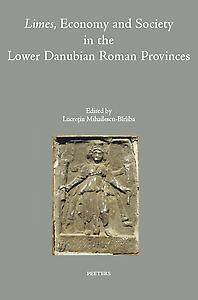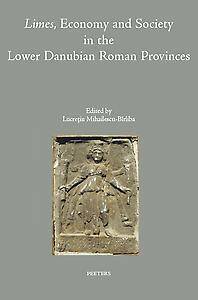
- Afhalen na 1 uur in een winkel met voorraad
- Gratis thuislevering in België vanaf € 30
- Ruim aanbod met 7 miljoen producten
- Afhalen na 1 uur in een winkel met voorraad
- Gratis thuislevering in België vanaf € 30
- Ruim aanbod met 7 miljoen producten
Zoeken
Limes, Economy and Society in the Lower Danubian Roman Provinces
€ 87,00
+ 174 punten
Omschrijving
This book presents the proceedings of a conference held by the 'Alexandru Ioan Cuza' University of Iasi in November 2017. Scholars from Iasi, Bucharest and Cluj-Napoca gathered to present not only the recent results of their work, but to discuss in which ways the river frontier has influenced economic, social and religious interchange. Roman frontiers have been studied with an emphasis on multiple intercultural dimensions. Scholarship has focused mainly on the political situation (the emergence of Roman domination and administration in the provinces), the economy (trade and traffic between Romans and Barbarians), military issues (the role of the army as a peacekeeper and as a bearer of cultures) and religious aspects (mutual impact of religious habits), etc. This volume aims to broaden the perspective on Roman riverine frontiers. The studies presented here, focusing on the provinces Dacia and Moesia inferior, investigate how rivers enhance or hamper connectivity on frontiers and thus shape riparian areas as multifunctional spaces with different functions. The present volume therefore proposes several steps to enpand our understanding of riverine settings in border regions of Roman rule. These riverine border regions are characterised by a significant presence of the Roman military, extensive economic activity and religious interchange.
Specificaties
Betrokkenen
- Uitgeverij:
Inhoud
- Aantal bladzijden:
- 278
- Taal:
- Engels
- Reeks:
- Reeksnummer:
- nr. 25
Eigenschappen
- Productcode (EAN):
- 9789042938120
- Verschijningsdatum:
- 9/12/2019
- Uitvoering:
- Hardcover
- Formaat:
- Genaaid
- Gewicht:
- 680 g

Alleen bij Standaard Boekhandel
+ 174 punten op je klantenkaart van Standaard Boekhandel
Beoordelingen
We publiceren alleen reviews die voldoen aan de voorwaarden voor reviews. Bekijk onze voorwaarden voor reviews.










